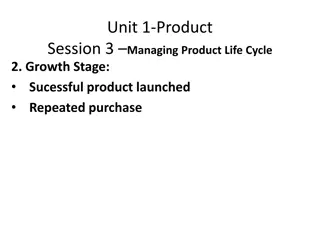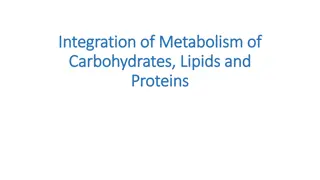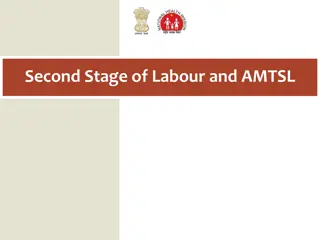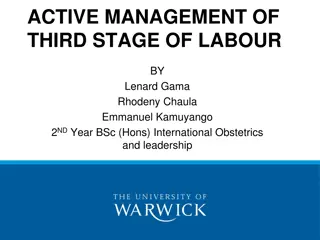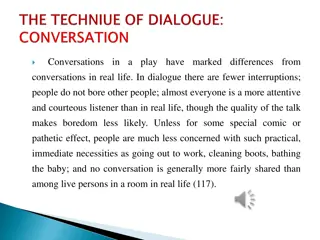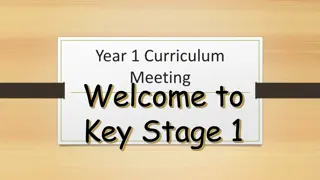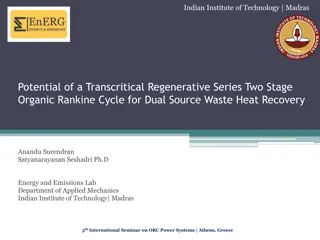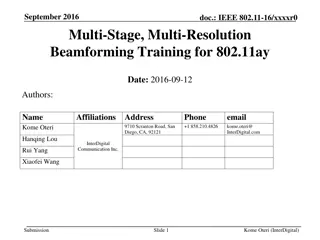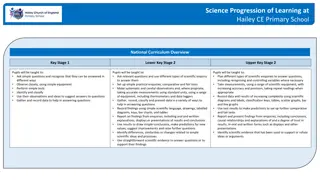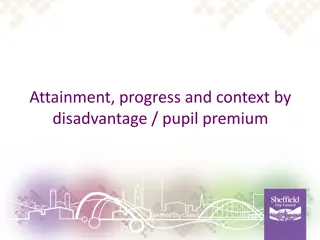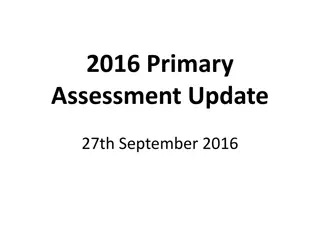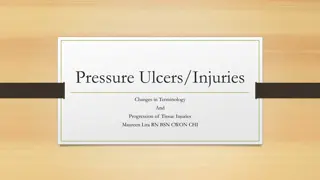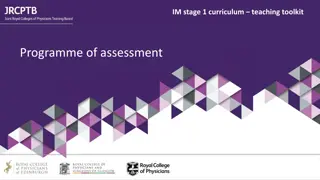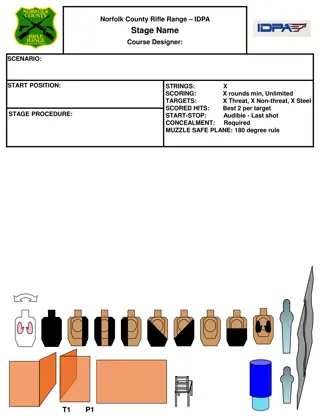
Infant Development and Relationships: Understanding Emotional Health, Attachment, and Cognitive Growth
Explore the important aspects of infant development including emotional health, attachment, types of attachment, emotional milestones, cognitive development, language development, and family & peer relationships. Learn about Erikson's first stage of development, building trust, types of attachment according to Ainsworth, development of emotions like joy, anger, and fear, cognitive development, language milestones, and how to foster relationships within the family and with peers. Gain insights into nurturing a child's emotional, cognitive, and social well-being during the crucial stages of development.
Download Presentation

Please find below an Image/Link to download the presentation.
The content on the website is provided AS IS for your information and personal use only. It may not be sold, licensed, or shared on other websites without obtaining consent from the author. If you encounter any issues during the download, it is possible that the publisher has removed the file from their server.
You are allowed to download the files provided on this website for personal or commercial use, subject to the condition that they are used lawfully. All files are the property of their respective owners.
The content on the website is provided AS IS for your information and personal use only. It may not be sold, licensed, or shared on other websites without obtaining consent from the author.
E N D
Presentation Transcript
STAGE 1 18 36 MONTHS
EMOTIONAL HEALTH NATURE V. NURTURE LOVE AND AFFECTION ERIKSON S FIRST STAGE OF DEVELOPMENT? TRUST V. MISTRUST HOW CAN TRUST BE DEVELOPED?
ATTACHMENT WHAT IS ATTACHMENT? STRONG EMOTIONAL BOND BETWEEN A __________ AND A __________. DURING WHAT AGE ARE CHILDREN COMPLETELY RELIANT ON THEIR CARETAKER? WHAT ARE THE RAMIFICATIONS OF THIS ON ATTACHMENT DURING THIS TIME? HOW ELSE DOES YOUR TEXT SUGGEST THE BUILDING OF A STRONG PARENT CHILD BOND? IS THERE A SENSITIVE PERIOD FOR THE DEVELOPMENT OF ATTACHMENT?
TYPES OF ATTACHMENT (AINSWORTH) http://psychology.cse.edu/DuarteEdwardsMendoza%20AinsworthAttachment%202006/Ainsworth.jpg SECURE ATTACHMENT SEPARATION ANXIETY SOCIAL REFERENCING INSECURE AVOIDANT INSECURE AMBIVALENT INSECURE DISORGANIZED RESULTS OF INSECURE ATTACHMENT
JOY, ANGER AND FEAR WHEN DO THESE EMOTIONS BEGIN TO DEVELOP? WHAT ARE THE APPROPRIATE RESPONSES TO THEM? http://s351.photobucket.com/albums/q478/rusydi27/?action=viewcurrent=Linux-Babies-Angry.jpgnewest=1
COGNITIVE DEVELOPMENT BRAIN DEVELOPMENT 80 BILLION TO TEN TRILLION NEURONS CONNECTIONS ARE WHAT IS IMPORTANT SO WHAT INCREASES THE CONNECTIONS FOR INFANTS? AS A PARENT, HOW CAN YOU INCREASE THE CONNECTIONS FOR YOUR CHILD?
LANGUAGE DEVELOPMENT BIRTH COMMUNICATION TYPE? 1 3 MONTHS COOING 2 7 MONTHS VOCAL EXPERIMENTATION 4 8 MONTHS BABBLING 8 12 MONTHS BABBLING WITH INTONATION 1 YEAR FIRST WORD 12 18 MONTHS PARROTING
FAMILY AND PEER RELATIONSHIPS SO INFANTS NEED TO DEVELOP FRIENDSHIPS? HOW MIGHT YOU TRY TO DO THIS? WHAT ABOUT FAMILY STRUCTURE, RITUALS AND ROUTINES? WHEN CAN THESE BEGIN? WHY? WHEN SHOULD THESE BEGIN? WHY? WHAT IS THE VALUE OF ROUTINES FOR THE INFANT?
PERSONAL GROWTH AND CHARACTER FORMATION ERIKSON S SECOND STAGE? STAGE TWO: AUTONOMY VERSUS SHAME AND DOUBT (1-3) AUTONOMY: DOING THINGS FOR THEMSELVES TEACH VALUES AND MORALS BUT HOW? (I.E. GENTLENESS, KINDNESS, ETC )

